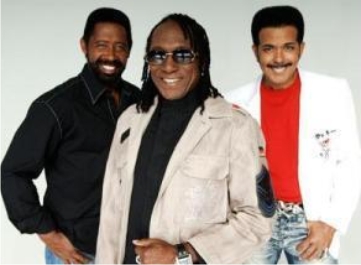
The members of Commodores, all of whom attended Tuskegee Institute …in Alabama, came together as a result of two groups disbanding. The members nearly went stir-crazy trying to pick a name for the group, but with no success. As a last resort, Orange gave King a dictionary and told him to pick a name — that name was the Commodores. With Clyde Orange, the only learned musician in the group, the Commodores began spreading their music throughout their base, which included Tuskegee, Montgomery, and Birmingham, AL.
Commodores’ long association with Motown began as a result of a tour opening for the Jackson 5. That opportunity occurred in 1971, when the group auditioned in New York City for an unknown yet high-profile gig. Their excellent shows naturally led to a deal with Motown, and they debuted with the up-tempo instrumental dance cut “Machine Gun.” Written by Milan Williams, its Top Ten outing gave the group immediate attention. It was followed by the Top 20 single “I Feel Sanctified,” which led to their third single — and first number one record — in “Slippery When Wet.” Inside of 17 weeks, the septet was rocking the airwaves with their brand of Southern funk, spiced with an animated vocal delivery courtesy of Lionel Richie and Clyde Orange.
In the years to come, the Commodores would be responsible for hits like “Just to Be Close to You,” “Fancy Dancer and “Brickhouse,” the song that soon became the group’s anthem. Later on, there was “Three Times a Lady” And “Still,” the last number one for the group with Richie as a member. In 1981, Richie recorded “Endless Love” with Diana Ross. The song peaked at number one for seven and nine weeks, respectively, on the Billboard R&B and pop charts. Its success was a prelude to what Richie enjoyed upon his 1982 exit from the group.
Commodores finally left Motown in 1985. Consequently, the group signed with Polydor the same year and had another swing at the Top Ten with “Goin’ to the Bank.” During the ’90s, the band was reduced to a core of three: Orange, King, and Nicholas. The threesome were nearly as active as they’d ever been, performing around the world and managing their own label, Commodore Records.


Follow Us